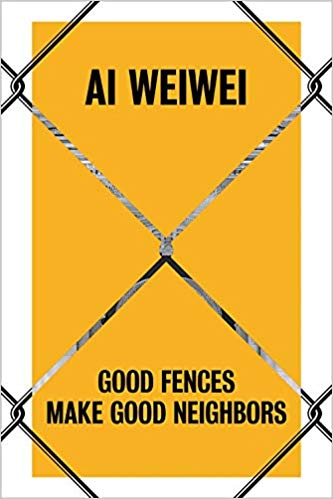Ai Weiwei: Good Fences Make Good Neighbors
 Unlikely that you have not come across internationally renowned activist and artist Ai Weiwei and his commentary on the status quo in some shape or form.
Unlikely that you have not come across internationally renowned activist and artist Ai Weiwei and his commentary on the status quo in some shape or form.
His exhibition Good Fences Make Good Neighbors, is a telling name as it is musing on the global refugee crisis by the man himself having transformed over three hundred sites across NYC to comprise a transcending large-scale statement par excellence.
This tome sheds light on the extraordinary project from inception to final installation, highlighting not only the implementation but also the in-depth attention to detail when it came to the preparation, the research and everything else that served as the foundation.
By doing so, the book becomes part of the art itself and adds another dimension, which is further enhanced by an interview with Weiwei, during which he elaborates on the significance the project holds for himself as well as essays from art critics, journalists, scientists and others, who muse on their own interactions with the project and give testament to the emotionally engaging and politically relevant nature of it.
I have not had the pleasure of experiencing the project in the third dimension, however, this tomes does a great job in conveying the concept, the negative impact of globalisation and the shift in the political landscape that made fences, the arbitrariness and often imaginary character of borders and demarcation lines and their impact on us all more relevant than ever.
What I found intriguing is how Weiwei not only points out the obvious, but also plays with nuances, e.g. the longing resulting from the mere knowledge of what lies on the other side of a fence without the slightest chance to ever get there – be it the fences that keep minorities confined or the walls others have built to exclude the less fortunate.
The takeaway of Weiwei’s work is that the crisis derived from immigration is not merely limited to regions but global and one that weights on humanity at large, including the manifold causes for it, be it environmental problems, famine or the fallout of politics – but also what it means for labour and taxes and thereby for globalisation.
A book that begs the question, what we as individuals can do about it.